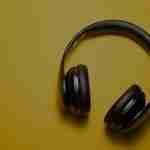I practice a lot. Some days more than others, but I try to get in a couple hours everyday no matter how busy I am. In many jobs I’ve had, I’ve even been known to take my horn to work and sneak away in a spare room once everyone leaves.
I bet your life is just as busy as mine. Between work, family, and personal obligations, our musical endeavors fall to the wayside and end up in a chaotic mess; you scramble to find an hour to practice and when you finally do, you’re not sure where you spent your time yesterday, where you should spend it today, and what you should spend it on tomorrow.
Relax. It’s time to get organized.
Documenting what you know
The first and main step in getting organized is documenting what you know. This is an easy step to pass by. Believe me, I still have much of what I know undocumented. Why is this bad?
It’s not necessarily bad that not everything you know isn’t documented and it’s probably impossible to document literally everything you know, however, conversely, the more you can document what you know, the more you will understand where your greatest strengths and weaknesses lie. Think of your documentation as a visual representation of your arsenal.
Document language you learn
Every week you should be further ingraining the language you know, and introducing new language into the mix. With all this language coming in and out the door, it’s easy to lose track of what you know, how much you’ve practiced it, and what you don’t know.
Start a line journal and keep it up to date. As you progress, it will be more and more difficult to keep it up to date. Nearly every time I practice, I stumble upon something that could be of some future use; a line, a concept, a particular rhythm. All of these are valuable bits of information that could potentially be added to my overall playing concept.
It’s up to you to get them down on paper so you can remember to practice them in the future.
As you organize all the language you know, put it into various categories that it primarily works over. Sure, one line can be used in many different harmonic situations. Choose one, and document it there. By storing your language into building blocks like this, you’ll be able to easily scan what’s there and what’s not there.
Record as well how much you’ve worked on it. Perhaps a tally mark for each practice session you hit it. Somehow you want to quantify or qualify how well you know each bit of language.
Document tunes you learn
Any tune that you’ve worked on, list here. Mark down whether it’s to the point you would record it, or wherever it may be in its development. Do not include tunes you kind of know. Just tunes that you feel fairly solid about. It’s okay if this is not many. That’s the point of this. To get it all down on paper so you can organize what you know and what you need to learn.
Not only list tunes, but keys and tempos as well. For these, use blues and rhythm changes. What keys do you feel ultra comfortable playing a blues in? Which ones are really difficult? Can you play uptempo rhythm changes? Where does it get difficult?
The more you can list about each key and tempo for blues and rhythm changes, the more you’ll be able to improve at these essential forms.
Document concepts
Just as you documented your language, go through the concepts you use frequently and list these out. This is a very broad subject that includes any sort of concept to do with music; harmonic, rhythmic, melodic, or sonic.
Talking to some of my favorite players, they commonly have told me they created their own scales. These are concepts that they can then apply to a variety of harmonic situations. Other people have told me they have rhythmic devices at their disposal which they tend to rely on for rhythmic variety.
What concepts have you worked on? Write them out as best you can and give them a name so you can easily identify them in the future.
Document solos you’ve transcribed
Write down the name of any solos you’ve transcribed or worked on at all. Often times you’ll realize that you’ve spent a ton of time on one soloist and perhaps neglected to checkout other player’s perspectives.
Or, by remembering what solos you’ve worked on, you’ll think back and wonder, “Did I get everything I wanted to out of that solo?” Then you have a mental note to get back into something that you forgot about. Something that at one point helped you a lot and something that could continue to help you improve.
Filling in the gaps
Once you’re clear what’s in your arsenal, it becomes very apparent where you should be spending your time. Where do you need more strength? Where do you lack knowledge entirely?
After documenting your language, chances are there are big holes in specific places. And then you’ll think to yourself…”Now I know why I botch that chord progression every time in that standard,” or something of that nature.
Look at your knowledge on paper and view it from a birds-eye perspective; see it in its totality. Perhaps you’ve learned a ton of lines, but very few concepts, or maybe you know more concepts as compared to lines.
Deal with the places you lack information entirely first, then work on strengthening areas that need it. Perhaps you review your language documentation and see you have over ten ii Vs at your disposal, but not a single minor ii V. Obvious where you should be spending the next month?
And remember that just one idea makes a world of difference. And with each new idea, your knowledge grows exponentially.
Expanding your knowledge
Getting organized will allow you to not only fill in the gaps in your playing, but it will allow you to expand your knowledge to untraveled places as well. You can never have the fundamentals down enough, but beyond that, what you choose to integrate into your concept is completely up to you.
After seeing what you know in front of you, make some decisions in which direction you want to be influenced. Perhaps all you see is influences from your own instrument, or maybe all you see is influences from jazz players. Who said you can’t transcribe a sitar player? Or where is their a rule that says you can’t learn from Stravinsky?
Anything can be an influence. Look at what’s brought you this far to help determine where you want to go.
Staying organized
Staying organized is a pain, but well worth it. Keep what you’ve learned and what you’re learning well documented so you can be sure to strengthen what you know and expand to new areas of study in the future.
Do whatever you have to do. Get organized. Stay organized. And you’ll be glad you did.










